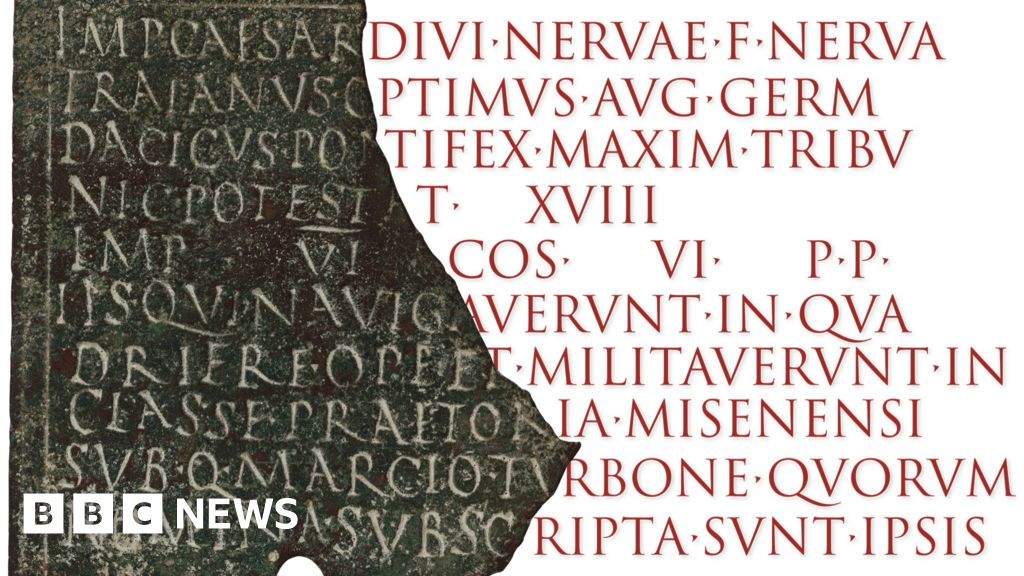
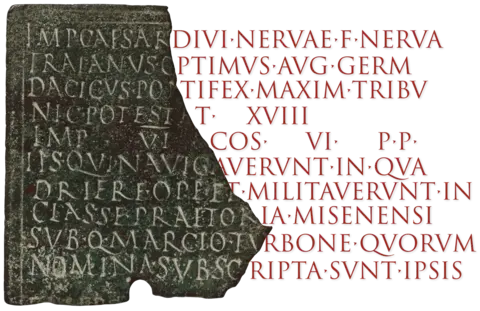 The Metropolitan Museum of Art
The Metropolitan Museum of ArtA new AI tool has the potential to turbocharge our understanding of all human history, researchers say.
Artificial intelligence has already been used to fill in gaps in ancient Roman scrolls, but a new system goes much further.
It can fill in missing words from ancient Roman inscriptions carved on monuments and everyday objects, as well as dating and placing them geographically.
AI often introduces errors in its analysis of even simple modern texts, so there are concerns that relying too much on this technology might distort rather than enhance our understanding of history.
But historian Prof Dame Mary Beard of Cambridge University has described the technology as potentially “transformative” to our study of past events.
She said that the system, called Aeneas, after a Greek and Roman mythological figure, could accelerate the rate at which historians piece together the past from ancient texts.
“Breakthroughs in this very difficult field have tended to rely on the memory, the subjective judgement and the hunch/guesswork of individual scholars, supported by traditional, encyclopaedic databases. Aeneas opens up entirely new horizons.”
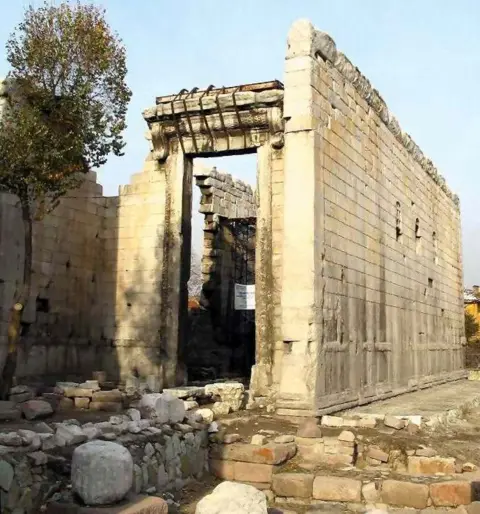 AtilimGunesBaydin
AtilimGunesBaydinAncient inscriptions are usually incomplete, of unknown origin and date, and often all three. Historians and classicists attempt to fill in the blanks by drawing on texts that are similar in wording, grammar, appearance and cultural setting, known as ‘parallels’. Ancient inscriptions tend to be formulaic so historians can often infer what the missing part of a sentence goes on to say.
The process is painstaking and can take months and years but opens new vistas in our understanding of the past, according to Dr Thea Sommerschield, an historian at Nottingham University, who co-led the research.
“Inscriptions are the earliest forms of writing. They are so precious to historians because they offer first-hand evidence for ancient histories, languages and societies.
“But they degrade over the centuries and interpreting them is like solving a gigantic jigsaw puzzle with tens of thousands of pieces, of which 90 per cent are lost.”
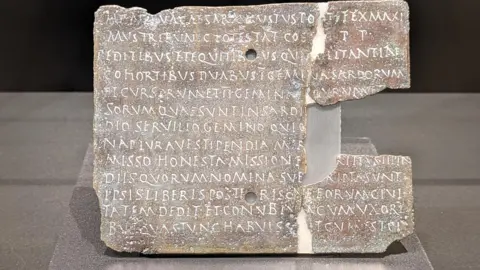 Thea Sommerschield
Thea SommerschieldIt’s not the first time AI has been used to join up the missing dots in Roman history.
Earlier this year, another team of scientists digitally “unwrapped” a badly burnt scroll from the Roman town of Herculaneum using a combination of X-ray imaging and AI, revealing rows and columns of text.
Dr Sommerschield developed Aeneas along with her co-research leader Dr Yannis Assael, an AI specialist at Google DeepMind. It automates the process of contextualising based on parallels, in the blink of an eye.
Aeneas draws on a vast database of of 176,000 Roman inscriptions including images and uses a carefully designed AI system to pull up a range of relevant historical parallels, to support the work of historians, according to Dr Assael.
“What the historian can’t do is assess these parallels in a matter of seconds across tens of thousands of inscriptions, and that is where AI can come in as an assistant.”
The team tested out the system in dating a famous Roman text at the Temple of Augustus in Ankara in Turkey, known as the queen of inscriptions because of its importance to our understanding of Roman history. The Res Gestae Divi Augusti was composed by the first Roman Emperor, Augustus, giving an account of his life and accomplishments. Its date is hotly contested among historians.
Aeneas was able to narrow down the options to two possible ranges, the most likely being between 10 and 20 CE and a second slightly less likely range from 10 to 1 BCE. This showed the system’s accuracy as most historians agree on these two as the most likely possibilities.
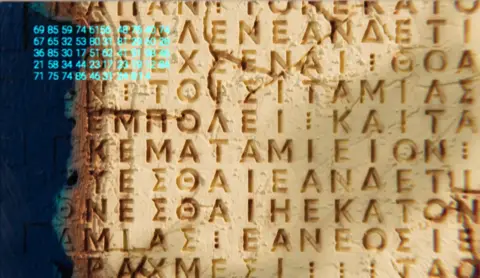 Google Deepmind
Google DeepmindIn tests of the system with 23 historians the team found that an historian working with Aeneas came up with more accurate results than either Aeneas on its own or an historian on their own.
“The feedback was that Aeneas was not only allowing the historians to accelerate their work but it also revealed parallels that they had previously not identified,” according to Dr Sommerschield.
“And that is the future value of this work, not just to do what we do faster and better but also to do things we didn’t think to do before.”
AI interpretation of even modern texts can be glitchy, so there is concern that mistakes could be made. But according to Dr Assael, Aeneas is a tool to guide historians, not a replacement for them.
“We acknowledge that AI might not be able to get everything right all the time and I don’t think historians will work under that expectation,” he said.
He said it would be down to human historians to weigh up Aeneas’ predictions and decide which made more sense.


